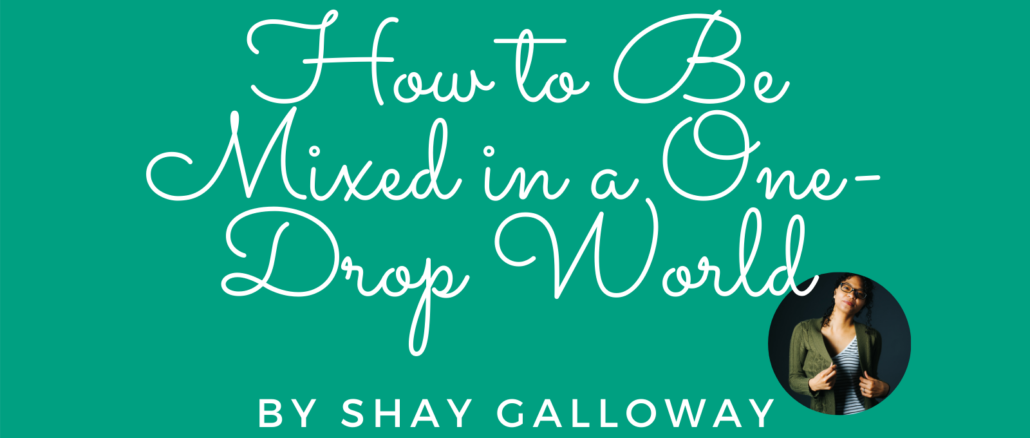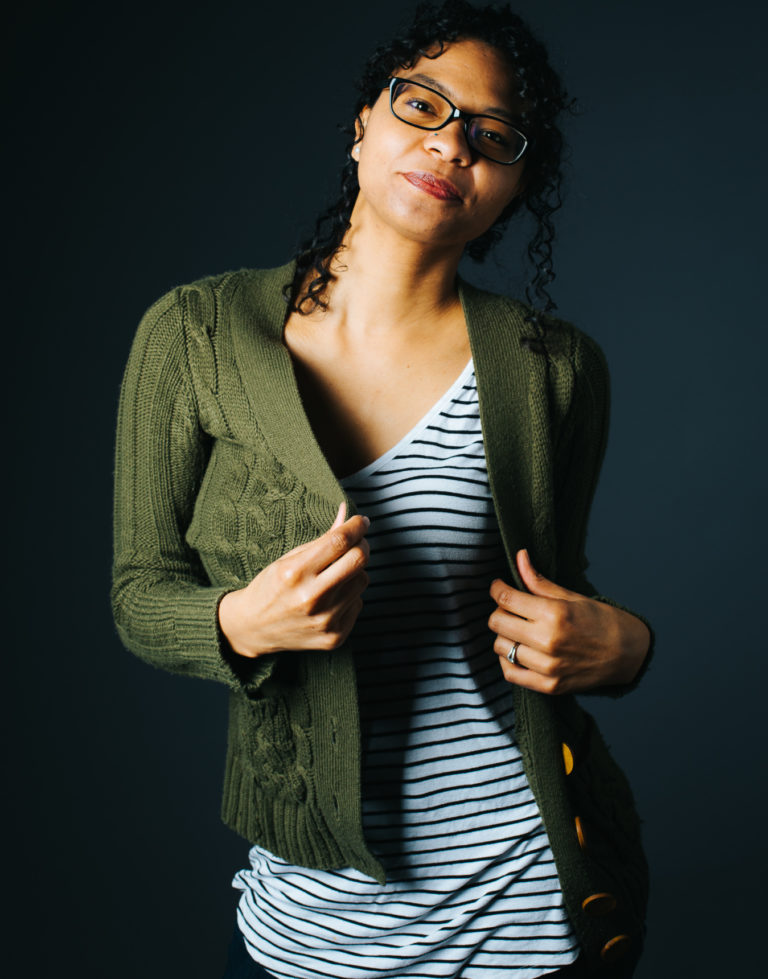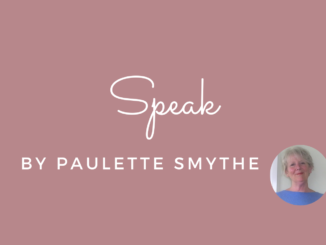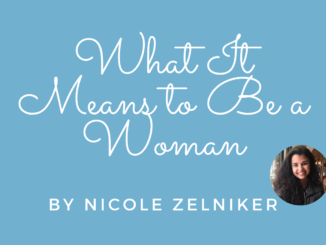
“How are you feeling, now being a mother of a black boy?” a friend asks me in the months following the birth of my son. She’s not the only one who asks. We’re in the midst of the COVID pandemic, a summer of police brutality protests across the nation. I mull over the question and look at my son with his creamy golden skin—the perfect balance of my golden brown and his father’s rosy cream—and I think, “But he’s white.” In truth, he’s probably about 65% European, 50% of that from his very British father. The other 15% comes from me, from my white ancestors. My son could easily “pass” as something Mediterranean, some sun-kissed Caucasian. So why then do my white friends refer to him as Black?
Among non-whites, it’s common to refer to anyone who is noticeably part white as either “mixed” or even as “white.” In a conversation with a close friend of mine—Vietnamese—we discussed how everyone just refers (or will refer) to her children as Asian, even though they are half white. “They look more white than Asian to me,” she said, “And they’re growing up in Utah.” When my mother and her cousins were children in Guam—children of white mothers and native fathers, they were referred to as “the white ladies’ kids.” When I travelled in South Africa, many of them immediately recognized I was not fully Black and questioned if I was “colored” (their term for mixed-race).
Among American whites, it’s a different story. Any sliver of “other” identifies you thus. Your great-great grandparents were Italian? So are you. You have a little Indian blood in you? Then there you go. Once upon a time your family was Jewish? Happy Hanukkah. You got a drop of Black blood? You are Black. We all know where this ideology stems from. The remnants of the One Drop Rule still run through the veins of our society, and it’s not only on the white side of the line. Black folks also urge anyone with Black roots to proudly claim and display those roots—in Chicago a woman proclaiming on the street saw me and said “Even you light-skinned folks, you Black!” I felt affronted and confused; she was calling me to anger, but I didn’t empathize with her anger. I firmly believe that no one should shy away from their roots, but boldly claim their ancestors for better or worse. According to a survey done by PEW, one-in-five multiracial people say they have felt pressure to identify as a single race. But in doing so does that mean we deny that other part of ourselves? Who are we but a culmination of all those who have come before?
At the same time, I’ve never well and truly felt Black or connected to my blackness. In middle school in Colorado, a girl speaking to me about a rapper realized I had no idea who she was talking about and exclaimed, “Girl, ain’t you Black?!” and all my eleven-year-old self could stutter was “I grew up with my white family.” I wondered then, “Is this what it means to be Black? To like rap?” I had no idea; I had little exposure to the Black community. Visitations with my birth father stopped when I was early in my elementary school days. My mother, despite her islander ancestry, presents olivine white. She married a white man when I was nine. I spent my adolescence in a rural town in Wyoming with my white adoptive father’s white family. I grew up being told I wasn’t really Black by white people who’d never met a “true” Black person. I’ve lost count how many times have I been told, by both my white and Black counterparts, that I am the “whitest Black person ever.” To this day I still feel more comfortable in predominately white communities, even though I know I stand out. When surrounded by other brown people I feel like an imposter; I stay quiet and separate, fretting that they’ll know. They’ll know I’m not one of them. What does it mean to be one of them?
One of my mentors in grad school suggested Danzy Senna’s novel Caucasia. In one scene, a brown-presenting girl tells her passable sister, “Mom doesn’t know how to raise a black child.” In reading that line, my childhood was illuminated. Race was not discussed with any seriousness in our household. Only once my (adoptive) dad intimated the attitude of his own grandfather and alluded that the man would likely not have accepted my brother and me.
My mother never sat my brother and me down and warned us how our brown skin may affect our lives. Instead we were encouraged to laugh about race, and once when I decided not to, my parents frowned and said I needed to be able to laugh about it or it would become a problem. The only time our race was ever really alluded to in seriousness came down to our hair; I was not permitted to wear my hair in small braids, and my brother’s curls were cut once they got “afro-y” because it made us look “too ghetto.” Up until my mother was married, she had been braiding my hair, and letting my brother’s hair grow long, and suddenly, we were taken from California, implanted in Wyoming, and urged not to appear “ghetto.”
I was raised in a household that downplayed the potentiality of an issue until it became a real problem—such was the case with finances, low gas tanks, vehicular issues; my and my brother’s race was treated no differently. Perhaps this was to protect us from knowing the ugliness of the world. Maybe it was because they didn’t know how to broach the subject; after all they are white—even for my mother’s islander blood, she passes, and so much of her dogma aligns with stereotypically white philosophies.
Where and how I was raised, I was sheltered from many of the experiences many of my brown sisters had. Though I didn’t look like my peers, I behaved like them; I was part of a family well-established and well-known in the community, I was part of the right religion—the one that pervaded the very lifestyle of the town—I excelled at school, I was often told how articulate and intelligent I was. Essentially, I grew up being one of them, and no one really questioned it. I grew up thinking that blatant and systemic racism was no longer a thing. And perhaps, because of all that, I moved through life and made plans for mine with confidence, without fear that I might be profiled and denied things due to my race. In fact, I worried in the opposite direction: that I’d get things only because of the Affirmative Action initiative—a subject many of my Wyoming compatriots would sneer at.
It was only after I moved into the big world and met “true” Black people, and heard their stories, did I realize I’d been so privileged. I listened to browner girls tell me about the backhanded comments they got in regard to their natural hair, their “earthy” skin. It was not until after I left my hometown that I began to realize how ignorant I had been and how ignorant all my comrades still were. It was not until after I left and I learned that I allowed myself to recognize the microaggressions toward myself throughout my life.
A girl I had been friends with in high school lamented on Facebook that “Black people aren’t harassed any more than anyone else!” I should have told her about the time when I was seven, living in California, and another brown girl and I were heading out to recess after finishing lunch a bit later than our friends and one girl told us we couldn’t play the game because “only light people could play.” I should have told her about the time in college when the mother of a guy I was getting involved with warned him about getting involved with me because my “lifestyle would be so different” even though we were attending the same college, the same church and lived in the same apartment block. I should have told her about the incident at the post office just two years ago with a man who mistakenly thought I cut him in line and then guffawed, “Whatever, that’s just what you people do,” before a white woman behind me informed him he was in the wrong line and he apologized to her. I should have told her these stories and asked what her experiences like this were, since we all, of course, are harassed the same. I should have asked her if she subconsciously looked for other brown people in neighborhoods where she considered buying a house, or if people ever questioned whether or not her children are hers.
I’ve had so few experiences in my life where I’ve been negatively targeted due to my skin color that I can remember them all. Many of my browner sisters can’t count the number of times it has happened to them. Those of us with more ambiguity get more freedom to wear our hair naturally, more apology for any slight, more exoticizing.
In recent decades, as race-mixing has become more common, a phenomenon of tokenizing mixed people has risen, on both sides of the aisle. The more racially ambiguous, the more enticing. Colorism among the Black community has men vying for lighter-skinned Black women. Exoticism has white men gung-ho with “jungle fever.” I myself have been complimented enviously about my soft curls, my golden-brown skin tone by Black men and white women—and while it’s left me flattered, it’s also rendered me strangely guilty as well. My own mother has said “Oh, mixed babies are the most beautiful.” I have seen the young white influencers in their burnished make-up and tanner until they’re toeing the line of Blackface. I myself have ogled over Jesse Williams on Grey’s Anatomy and Shemar Moore on Criminal Minds. But just like in every race, not all those who are mixed match the “ideal” appearance.
At a panel on mixed-race writers, one of the authors said “But what about those of us who can’t pass? Those who are asked ‘what are you mixed with?” The brown girls. Their “mixed” badge is often swept under the rug and they are lumped under the umbrella of the one-drop rule. Being part white is not the definition of mixed, but that often is seen as a criterion, and to be mixed with something other than white is not immediately apparent to the non-mixed (primarily Caucasian) crowd.
Given their lack of exposure to people of color, many people in my hometown had no idea I wasn’t fully Black, often asking my mother about her adoption process—one lady even asked where she “found” my brother and me. In those times was when I truly felt my color. It wasn’t exactly shame I felt, it was more like an inexplicable embarrassment, a wish to be more ambiguous, more exotic. I wanted my mom and me to look more alike. I just wanted to look a little more like I belonged. I imagine that if I went back to that area and went out with my child, people would assume I was his caretaker, though we share the same eyes, ears, and nose. They would see his light skin against mine and fail to connect us. Only once, so far, has someone questioned whether he was my child or my ward—but to be fair, I do look very young, and she couldn’t see him.
Though I never yearned to be fully white, there were times when I wondered if my physical appearance was what kept boys from being interested in me—not only was I flat-chested and lanky, but I had frizzy hair, a wide nose, large lips and big teeth. I did go on a few dates, mainly casual activities with close male friends and a few school dances. In those times, when I was all gussied up, my hair straightened, my eyes lined and lashes elongated, they did tell me I looked nice.
I have wondered over the years if I am tokenized by the few boys I did go on dates with. Do they tell their friends they went out with a Black girl once? I imagine they say “It was nice. She was pretty cool. She was funny.” Do those boys from high school who modeled their derby cars after the Dukes of Hazzard’s General Lee use me as an example of their non-prejudice? Do they say, “I’m not racist, I was friends with a Black girl back in high school.” Do they say, “Yeah, I sported the Confederate flag and she didn’t have a problem with it.” (This affinity for the Confederate flag and rednecks left me more confused than affronted, as Wyoming is not even part of the South, and most of those boys came from well-to-do middle-class homes). I think about those people I grew up with.
To be fair, my classmates were aware when a joke went too far, they knew the “n” word was offensive. And when they had questions about how I did my hair, or whether or not I sunburned or bruised or got warmer than them in the sun, they asked tentatively, afraid to draw offense. The youth of my hometown, at least, were sensitive enough to ask questions, to understand the existence of prejudice. But they have grown into adults who think everything that has been done to combat racism so far is enough, and they spurn any “special treatment” for people of color. I still see their somewhat insensitive and entirely misinformed posts and I frown at their ignorance. I know if I were to meet them again, they’d welcome me warmly and ask after me, they’d coo at my son and tell me how cute he is; I know I would get along with them and laugh with them about old times. But I also know if I confronted them about their underinformed opinions they would say, “Well, it doesn’t apply to people like you,” and “You’re not really Black, so why is it such an issue?”
What does it mean to be Black? What does it mean to be white? To be mixed? More than half of mixed-race people claim that being multiracial gives them an advantage (PEW). I can’t speak to what those advantages may be. Perhaps it’s a sense of feeling connected to many cultures, of being able to move between them. Perhaps it’s a sense of being outside of the standard, of the freedom of ambiguity, the smirk of satisfaction when the confusion arises on others’ faces. But should being multiracial include an obligation to pander the idea that the world is a better, more accepting place? Do I have some sort of responsibility to bridge the divergence between all my races? If it seems that is my goal given some of the choices I’ve made, it is entirely incidental. I married a white man because the man I happened to fall in love with was white. I feel more comfortable in predominantly white crowds because I was raised in them. I am multiracial because my parents lived in a place where different races associated with one another. And maybe in saying all this, I’m showing my privilege. I have the privilege of denying myself any duty of bridging two worlds; I am comfortable where I am.
I had a student once, an older Black woman, ask me if I ever felt conflicted about how to identify. I told her truthfully, no. Perhaps I did once, but not anymore. I searched for my Black roots as I travelled to South Africa, and as I took part in West African dance classes, as I spit into DNA test tubes. I’ve learned to love my hair, to give it what it needed to reach the potential of its beauty. I’ve learned to accept the possible assumptions that will be made about me. I explained to her: I always identify as mixed unless forced to choose only one, in which case I will opt for “other” before I opt for “Black.” Why? I acknowledge my Blackness, I acknowledge my ancestors and those that have come before, but I understand I am removed from my contemporaries. I have not had as many of the countless doubts and prejudices and obstacles placed before me as my darker sisters. I cannot feel it is fair to claim for myself that full Blackness, to fall under the one-drop-rule. And I have come to terms with my lot: I feel the righteous anger of the profiled, but I also recognize and acknowledge the reasoning of the ignorant and underinformed.
I am not offended by the question “What are you mixed with?” Instead, when asked this question I see that the inquirer has been exposed enough to see the variance and understand that there are nuances even within a race. I look at all the sides of me and think “I am one of you, and I am not. I cannot be labelled; I cannot be pinned down. I defy expectation and leave people in wonder. I am brown and white and everything in between.”
But what about my son? What will it mean to him to be Black and yet not Black? How will he claim himself? How will others perceive him? Black, white, mixed-race? Will I have to worry about him walking alone, wearing a hoodie? Or will the police pass over him without question? How much will he be scrutinized? Is there a time in his future when, no matter where we go, people will recognize us for mother and son? Is there a time in his future when racial ambiguity will become commonplace, when race is nothing more than a notation—when the one-drop rule becomes obsolete?
Shay Galloway studied creative writing at Utah State University and received her Bachelor’s degree in 2012. She received her MFA from Roosevelt University in 2017. Her work has appeared in Origami Journal, Adanna, The Write Launch, A-Minor Magazine and The Lindenwood Review, with a forthcoming novel with Running Wild/RIZE Press. She currently resides and teaches in Washington.



